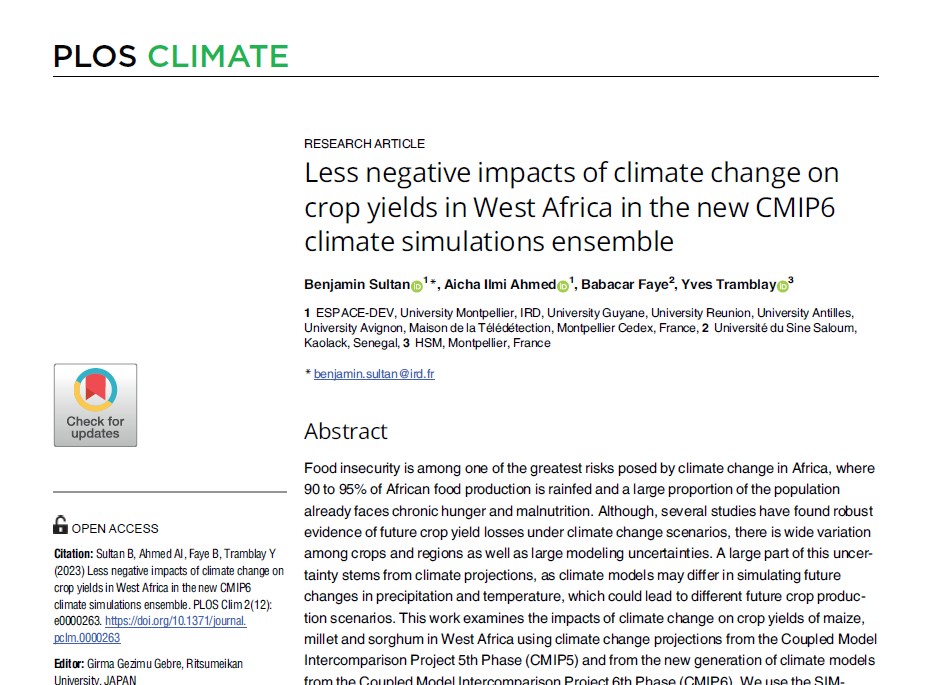Abstract
Food insecurity is among one of the greatest risks posed by climate change in Africa, where 90 to 95% of African food production is rainfed and a large proportion of the population already faces chronic hunger and malnutrition. Although, several studies have found robust evidence of future crop yield losses under climate change scenarios, there is wide variation among crops and regions as well as large modeling uncertainties. A large part of this uncertainty stems from climate projections, as climate models may differ in simulating future changes in precipitation and temperature, which could lead to different future crop production scenarios. This work examines the impacts of climate change on crop yields of maize, millet and sorghum in West Africa using climate change projections from the Coupled Model Intercomparison Project 5th Phase (CMIP5) and from the new generation of climate models from the Coupled Model Intercomparison Project 6th Phase (CMIP6). We use the SIMPLACE crop modeling framework to simulate historical and future crop yields, and bootstrap techniques to evaluate projected changes in crop productivity between the CMIP5 and CMIP6 ensembles. Using the new generation of climate models CMIP6, we find that the negative crop yield projections shown by CMIP5 simulations are largely reduced, with even large increases in crop yields when the effect of atmospheric CO2 concentration is considered in the crop model. These differences in crop yield impacts between the CMIP5 and CMIP6 simulations are mainly due to different climate projections of temperature and precipitation in West Africa; CMIP6 projections being significantly wetter and cooler by mid-century and to a lesser extent by the end of the century. Such results highlight the large uncertainties that remain in assessing the impacts of climate change in the region and the consequent difficulty for end-users to anticipate adaptation strategies.
